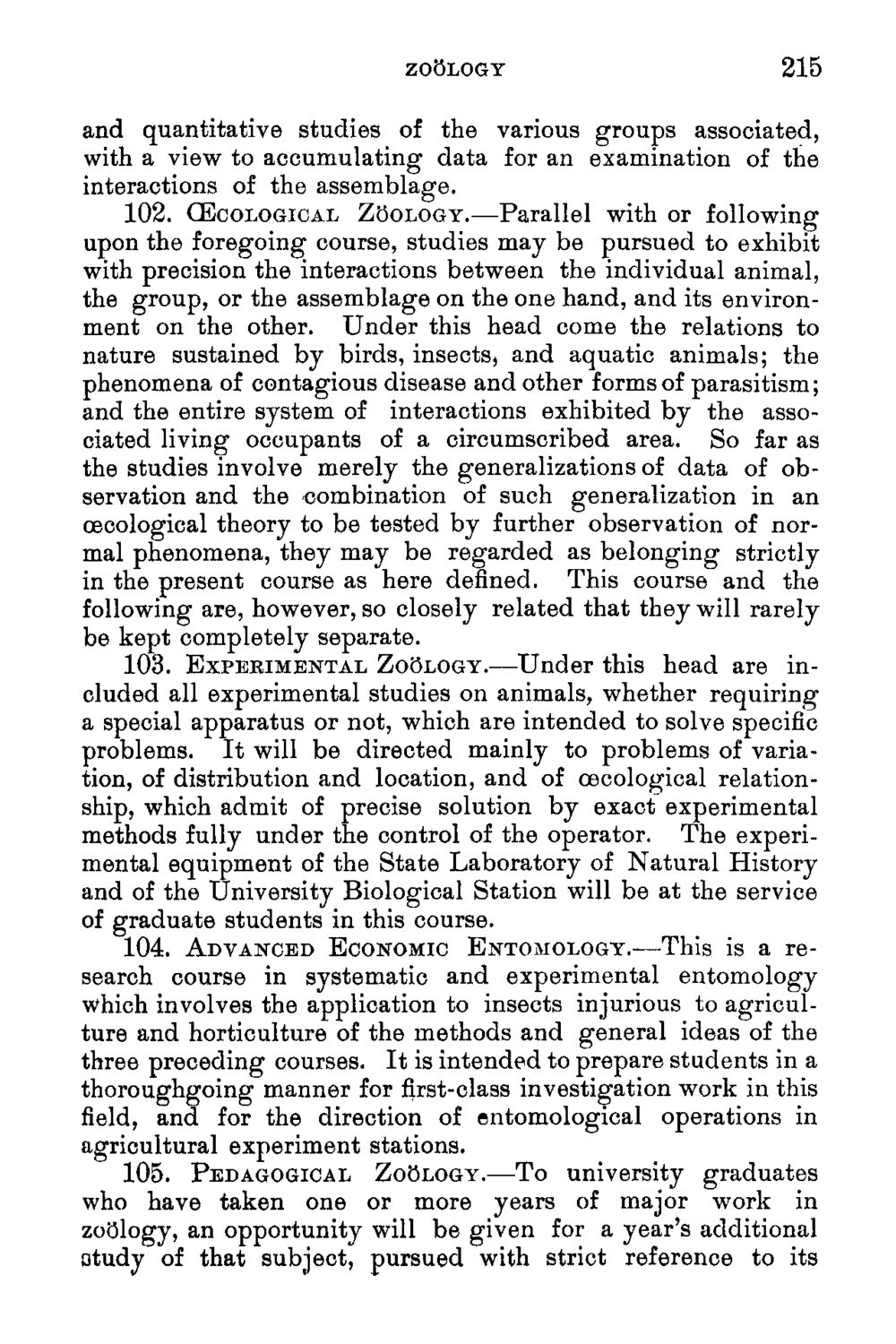| |
| |
Caption: Course Catalog - 1895-1896
This is a reduced-resolution page image for fast online browsing.

EXTRACTED TEXT FROM PAGE:
ZOOLOGY 215 and quantitative studies of the various groups associated, with a view to accumulating data for an examination of the interactions of the assemblage. 102. (ECOLOGICAL ZOOLOGY.—Parallel with or following upon the foregoing course, studies may be pursued to exhibit with precision the interactions between the individual animal, the group, or the assemblage on the one hand, and its environment on the other. Under this head come the relations to nature sustained by birds, insects, and aquatic animals; the phenomena of contagious disease and other forms of parasitism; and the entire system of interactions exhibited by the associated living occupants of a circumscribed area. So far as the studies involve merely the generalizations of data of observation and the combination of such generalization in an cecological theory to be tested by further observation of normal phenomena, they may be regarded as belonging strictly in the present course as here defined. This course and the following are, however, so closely related that they will rarely be kept completely separate. 103. EXPBEIMBNTAL ZOOLOGY.—Under this head are included all experimental studies on animals, whether requiring a special apparatus or not, which are intended to solve specific problems. It will be directed mainly to problems of variation, of distribution and location, and of cecological relationship, which admit of precise solution by exact experimental methods fully under the control of the operator. The experimental equipment of the State Laboratory of Natural History and of the University Biological Station will be at the service of graduate students in this course. 104. ADVANCED ECONOMIC ENTOMOLOGY.—This is a re- search course in systematic and experimental entomology which involves the application to insects injurious to agriculture and horticulture of the methods and general ideas of the three preceding courses. It is intended to prepare students in a thoroughgoing manner for first-class investigation work in this field, and for the direction of entomological operations in agricultural experiment stations. 105. PEDAGOGICAL ZOOLOGY.—To university graduates who have taken one or more years of major work in zoology, an opportunity will be given for a year's additional atudy of that subject, pursued with strict reference to its
| |